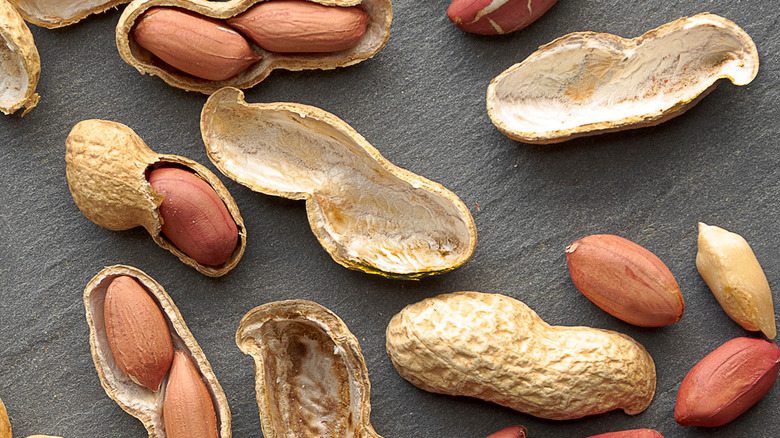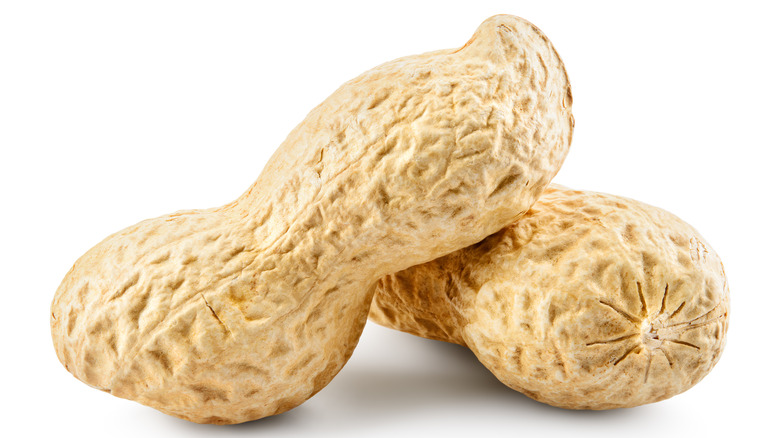Is It Safe To Eat Peanut Shells?
If you're someone who likes a little extra crunch when snacking on nuts, you might fall into the category of people who enjoy eating peanuts with the shell still intact. In a public social media announcement, the National Peanut Board reached out to Twitter and Instagram users to voice support for all forms of peanut snacking — with or without the shell. Responses were split, with one user responding, saying, "Always have eaten with the shells on! Is there any other way!" Others expressed confusion at the idea of peanut shell eating, with one user writing, "I...didn't know that was a thing."
Peanuts themselves are rich in nutrients, as they contain antioxidants, fiber, iron, magnesium, and protein. Conversely, the peanut shell is made up of 60% crude fiber, 6% crude protein, 25% cellulose, 8% water, and 1% fat. While peanuts are considered beneficial to our health, the shell is only minimally so. Therefore, is it a good idea to eat the shell in addition to the peanut, or are there health risks in doing so?
The health risks of eating peanut shells
While the occasional accidental consumption of a peanut shell isn't life-threatening, purposely eating them is not generally advised. The makeup of a peanut shell is a lot like cardboard or sawdust when ingested, and our digestive tract is unable to adequately break it down. This can lead to potentially dangerous blockages, as well as inflammation. One such condition that can develop from eating peanut shells is colitis, characterized by inflammation in the colon due to damage, infection, or blood loss.
Additionally, pesticides may be present on the shells of peanuts, due to the fact that peanuts are often treated with chemicals to protect against fungal contamination. Because the shells are not intended to be eaten, farmers often do not remove these pesticides. Not only that, but species of fungi known as Aspergillus flavus and Aspergillus parasiticus can be found on peanut husks and are known to hinder growth in children, decrease immunity, and have been linked to the development of cancer.
In the event that you find yourself consuming large amounts of peanut shells regularly, it's encouraged to speak with a doctor. Rather than a snack, peanut shells can be put to more effective use in the form of cat litter, mulch, barbecue charcoal, or compost piles.


